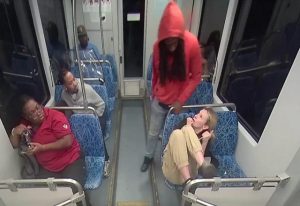From Colombia to the United States: WHS Alum Lina Cañon’s Journey
Former WHS student Lina Canon is interviewed by current WHS senior Nick Smaldone
January 10, 2019
On November 30, 2018, former WHS student Lina Cañon visited the WHS Journalism III class to speak about her life journey and offer some advice to the students.
Cañon migrated at the age of 10 with her family from Colombia to the United States.
Moving to the U.S. provided her family with more opportunities that people born in the U.S. often take for granted.
“When you’re from a country that lacks access to education and financial mobility for many reasons, you choose to do better. The United States was always painted as a place where anyone could go and obtain financial stability and a higher quality of life. That, and being granted a visa solidified the plans to come to the U.S.,” says Cañon.
After living in Framingham, MA for a while, Cañon’s family moved to Westborough–a more affluent and less diverse community. Her mother had heard Westborough had a great school system that would help make her family’s American Dream come true.
Cañon explains, “It’s the same story you hear over and over, people want to provide the best life they can for their children.”
Cañon soon found herself with mixed emotions towards Westborough High School as “my high school experience impacted me both, positively and negatively.”
“Negatively: There was a lack of understanding of how to empower and support low-income students of color. While there were scholarships, and reduced lunch programs, on paper it would seem like WHS was doing everything they could. However, the high school culture itself wasn’t one that created a safe environment where people like me felt they were included and accepted and could therefore thrive. From microaggressions and lack of sensitivity/cultural competence to always feeling “foreign” or different,” she comments.
She continues, “Positively: It was during high school where few, dedicated staff went out of their way to pave a path for success post-graduation. It allowed me to see individuals within the system who did provide support, and challenged me to be a better person, and strive for bigger goals. I would also say the network and education at WHS contributed to some of the successes I have had in life.”
As the oldest of two children, Cañon had to step up and to help provide for her family at the early age of 13. She held two jobs–one at a local hotel and the other at a nursing home–working up to 8 hours after attending a full school day. At the hotel, Canon was eventually promoted to the front desk.
Cañon reflects, “Being from a country like Colombia, where everyone is always working to provide the basic necessities for themselves and their families is what formed my work ethic. I think living here gave me access to multiple jobs, and with the mentality I already had I took advantage of that by employing myself in as many opportunities as I could.”
Through the encouragement of a guidance counselor, Cañon applied to college. She was accepted and earned a full scholarship to Suffolk University in Boston, MA.
After reflecting on her high school and college experience, Cañon shared with the current WHS students about some of her biggest life takeaways through these experiences. Some of her takeaways include compassion, building your network, and the great amount of gray areas in life.
Going through high school made her realize, “Compassion goes a long way. High school is a tough time given the age and emotions that are happening during that time. It’s important to be compassionate to others, and to yourself.”
Through many of her job experiences, Cañon realizes having a good network is very promising, “Build and nurture your network. This life we live is very long, it’s the longest thing we’ll know aside from our legacy. The person you are sitting next to you could be someone you never see again or someone who hires you, or you hire, or you marry: the possibilities are endless. That’s why you should always think of people as members of your network.”
When making decisions Cañon finds it very important to take a step back and realize there isn’t just right or wrong, there is a gray area, “There is no black and white in life, there is a lot of gray areas. I think this is a big one. I often jumped to make decisions or assumptions based on a mentality of right and wrong. While in some cases there is a clear wrong, most scenarios are situational and complex. If you approach every situation with that mentality, it can change your whole life. Remember, at the end of the day we are all one of many human beings that is just trying to make it. If we capture that, we achieve solidarity.”
As she concluded taking the students through her life journey, she explains how she continues to learn from her experiences to make new opportunities.
She says “Being from Colombia shaped my identity and dictated the lenses that I use to see the world. I think this goes to anyone who is born (and raised) in a place different from the one they live in. I think being from Colombia allows me to take experiences with more gratitude, responsibility, and curiosity.”
Cañon now works for a philanthropy organization in Boston as well as co-produces her own podcast called The Activist Hustle (https://www.stitcher.com/podcast/brandon-rush/the-activist-hustle). She is currently in El Salvador leading a volunteer humanitarian trip.







